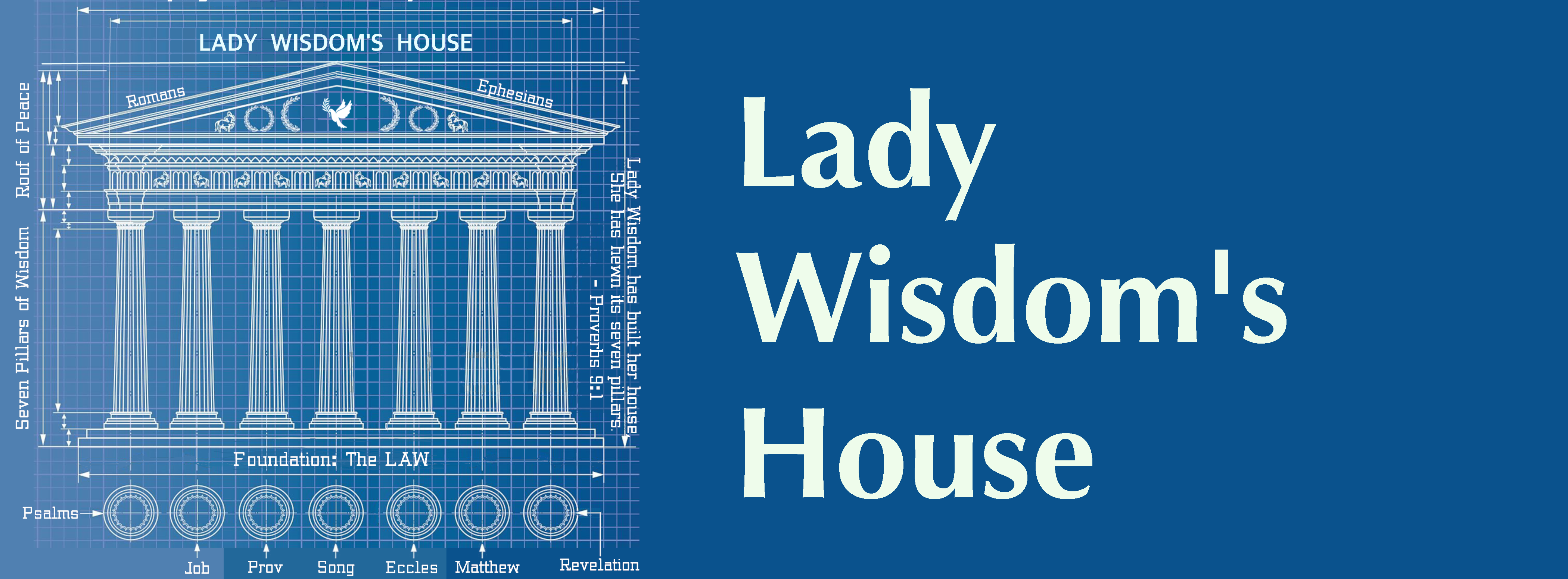Habakkuk Part 6
927 words long.
Published on 2024-03-30
War
God’s predicted war against the wicked empires oppressing Israel and all other nations is the climax of Habakkuk’s prophecy. It is not a poetic flight of fancy but a tightly structured bit of poetry. The evidence is the sixfold repetition of at least nine themes followed by the prophet’s sixfold emotional and physical response, for ten sixes in all. (Ten is the number for human completeness.) Here are the themes of war. Numbers in parentheses indicate that the given word appears more than once.
- Time: years (2), eternal, everlasting (2), day
- Weapons: sheath, bow, arrows (3), quiver
- Divine Wrath: wrath (2), anger (2), indignation, fury
- Human Fear: fear, affliction, tremble (2), trembles, quiver
- Heaven & Earth: heavens, earth (4), land (land of Midian uses the same Hebrew word as earth)
- Water: rivers (3), sea (2), waters (but “the deep” as synonym for the sea might make this tally seven!)
- Glory: splendor, veiled, brightness, rays, light, flash
- Shaking: shook the nations, mountains were scattered, hills sank low, curtains … did tremble, split the earth, mountains … writhed
- Enemies: nations (2), Cushan, Midian, house of the wicked, people who invade us
This is the prophet’s sixfold response from Habakkuk 3:16:
- I hear
- And my body trembles;
- My lips quiver at the sound;
- Rottenness enters into my bones;
- My legs tremble beneath me.
- Yet I will quietly wait for the day of trouble to come upon people who invade us.
Did Habakkuk consciously understand the full import of the Lord’s message? Maybe, maybe not. His body did.
Do I understand this passage?
No. I know enough to tell me a few things. First, do you recall the story of Daniel interpreting Nebuchadnezzar’s dream of the statue made of gold, silver, bronze, iron and clay? The king mistrusted his wise men, so he made an impossible request. He would only trust the interpretation of the dream if it was given by a man who could also tell him what he had dreamed. Since only the gods could know that, the king figured only a sage to whom the gods actually spoke could answer. Then, by verifying something he already knew, he could judge the truthfulness of the interpretation. This is very close to the modern cryptographic concept of a “zero knowledge proof” for establishing trust between two parties without needing to share privileged information.
(NOTE: The final part of this series about the number 153, Habakkuk's War, goes deeper into this section of Habakkuk. God granted me more understanding later.)
If someone tries to offer an interpretation of Habakkuk 3 and they cannot tear it apart into logical pieces that correspond to history and the themes of the preceding sections, assume they are wrong. Since Habakkuk’s chief concern was the restoration of Israel, I assume (as others before me) that this passage is speaking of World War I and/or World War II and their horrifying weapons. I assume that there is a reference to Hitler and the Holocaust here:
You went out for the salvation of your people,
for the salvation of your anointed.
You crushed the head of the house of the wicked,
laying him bare from thigh to neck.
You pierced with his own arrows the heads of his warriors,
who came like a whirlwind to scatter me,
rejoicing as if to devour the poor in secret.
- Habakkuk 3:13-14
The whirlwind could be the firebombing of German cities and “devour the poor in secret”, the death camps.
Of course, this could also refer to the Day of the Lord when Christ returns. The hook in section three was a shout out to Leviathan in Job 41. It added a distinct sixth element to the five net/dragnet references that is both similar (hooks catch fish) and dissimilar. Everything in this sixth section comes in sixes. That suggests that it applies to the five early empires as well as the final beast, Leviathan. How can we untangle the two battles, against the five beasts and the last beast? I leave that to others wiser than I. All I do know for sure is that the Lord will deliver his people – every time.
Links to the other articles in this section:
- Connections to other books The scope of inquiry is given. The riddle is connected to Genesis, Psalms 34 and 119, Jeremiah 32, Habakkuk, John 21, Matthew 13, and Revelation 9.
- Defining 153 Noah's Flood is shown to have lasted precisely 153 days.
- Fear 153 is connected to the Fear of the Lord through Psalms 24 and 119, Luke 12 and 2 Kings 17.
- Hope Jeremiah connects a related victory number, seventeen (17), to hope. Then the themes of John 21 are connected to Habakkuk.
- Habakkuk: Part 1 Analysis of Habakkuk 1:1-4. Habakkuk puts questions to God.
- Habakkuk: Part 2 Analysis of Habakkuk 1:5-11. God doubles down: the bitter and hasty Chaldeans are coming.
- Habakkuk: Part 3 Analysis of Habakkuk 1:12-2:1. Habakkuk complains with three threes about innocent people caught in a cruel net.
- Habakkuk: Part 4 Analysis of Habakkuk 2:2-5. God offers a fourfold assurance to the faithful.
- Habakkuk: Part 5 Analysis of Habakkuk 2:6-20. Five woes are pronounced against lawbreakers.
- Habakkuk: Part 6 Analysis of Habakkuk 3:1-16. Prophecy of God's coming six-ply war against the wicked.
- Habakkuk: Part 7 Analysis of Habakkuk 3:17-19. Six laments over a barren harvest and a seventh praise of God in faith.
- The Fifth Trumpet of Revelation The Revelation 9 Plague of Locusts lasts 153 Years.
- Habakkuk's War Revisits the sixth section of Habakkuk with a final insight into God's battle plan.

